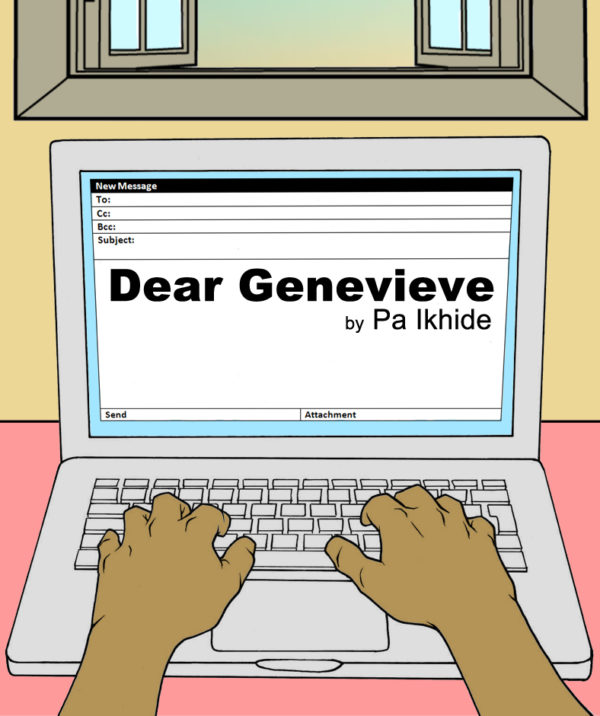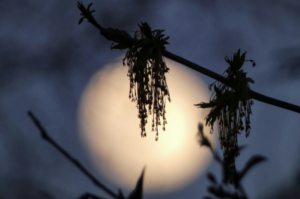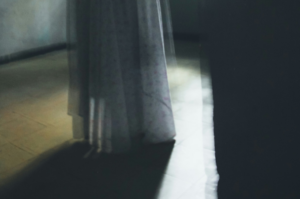Here in my part of America, the leaves are falling, the heart stirs and I am restless. There are all these things on my mind, and I am itching to share them.
The world we live in is on edge it seems, from Africa to Europe to the Americas, it seems like everywhere one looks, all one sees is change, the scary kind of change. There are all these discordant voices taking us to a dark place, I am afraid. I am resolved to keep speaking up. Well, certain truths have to be told. And told loudly. I am thinking about this mantra I saw on Twitter: Speak the truth even if your voice shakes. Yes. I would also add, even if you lose some friends. I am not sorry, what is literature if it is not about the narrative? What is literature if it is innocent of politics? I have been reading Chinua Achebe again, you should read this lovely conversation between him and James Baldwin. Achebe says:
Those who tell you “Do not put too much politics in your art” are not being honest. If you look very carefully you will see that they are the same people who are quite happy with the situation as it is.
And what they are saying is not don’t introduce politics. What they are saying is don’t upset the system. They are just as political as any of us. It’s only that they are on the other side.
Sigh. There was a time when our writers were men and women of conscience. Our writers also need to reflect upon the collective effect their writing has had on Africans as a people. I have asked several times, why do we invest in poverty porn when we talk about Africa? If white folks were writing these things would we not call them racists? Many writers and African literary institutions have taken umbrage at my views and have expressed their disapproval with actions that range from benign passive-aggressive conduct to outright abuse. I wear the treatment as a badge of honor. The latest unhappy writer is Chigozie Obioma, who recently wrote in the UK Guardian about what he perceives as his poor treatment by African readers:
When I published my novel, The Fishermen, last year, one of the most common — and most surprising – questions I received was about my intended audience. This question, I came to discover, is frequently asked of writers… In the past few years, writers have responded in various ways. One reaction comes from a group of writers — including Taiye Selasi — who have sought to nix the idea of the “African” writer’s identity. Others, many of whom live in Africa, have argued that the solution is to play up their identity to an extreme — seeking to be read chiefly because of their origin rather than in spite of it.
In a recent article, Nigerian writer Eghosa Imasuen argued that provincial writing is always political, objecting to the way things are explained unnecessarily for international audiences. For example: “If you write ‘He dipped his hand into the eba’, a phrase will follow to explain that eba is ‘that yellow globular mashed potato clone made from Cassava chippings’.” His frustration is evident: “You’re like, ‘Arrghhh, don’t explain it, they can Google it!’”
Actually, the history predates Imasuen et al. Did you read this blogpost on Brittle Paper (Author of The Fishermen, Chigozie Obioma, Calls Out Book Reviewers On Twitter)? Read the comments section, there is a rant there by Obioma in which he goes off on “reviewers” and “African readers” for not being supportive. I was one of those reviewers he doesn’t mention. In my view, Obioma wrote a good book and an important one and I said so in my review. In that review and this piece I did for Jalada (Of African literature and the language and the politics of the stories). It is true, I was particularly bothered by his bastardization of pidgin English and need to explain ordinary Nigerian English words to Westerners as in: “I recall one Sunday afternoon when Iya Iyabo came in while we were eating black-eyed peas marinated in palm-oil sauce.”
When did good old beans become “black-eyed peas marinated in palm oil sauce, I wondered. He did not like that and his response in terms of our relationship was swift. I joined an odious group of Nigerians, haters who do not wish him well and were jealous of his progress. He lashed out on social media and unfollowed and unfriended me and all those who had the temerity to push back at his book. After the meltdown on BrittlePaper he adopted a more measured and respectful approach to us in The Guardian and took issues with the notion that we are “concerned with provincialism:”
Writers who are most concerned with provincialism — with pleasing a particular base of readers — are probably not concerned with conveying “the vivid sense of event.” Such a writer will almost always falter in his writing, and yield, more often than not, to telling rather than showing.
You are damn right, we are asking you to be provincial. As I have said over and over in my essays, it is time for African writers to be insular, like their Western counterparts. This is why I am high on what you guys are doing on the Internet and social media. Yes o, young African writers do not feel a need to italicize African words like egusi and ugali and no longer explain African words and sayings. Google is your friend, they say. Good for them. You are not writing for a Western audience, you are simply writing – and inviting the world to immerse themselves in your world and google their way through the labyrinths of the rich catacombs of your lives. If that is provincialism, I say we need more of it. Now, you’ve made me hungry. Have you eaten?
************
“Dear Genevieve” is a writing-advice series. The weekly missive allows Ikhide Ikheloa, one of Africa’s foremost literary critic, to dish out prized advice on various aspects of writing. Stop by next Monday for the next email.
Read more from the series:
Pt. 1: Dear Genevieve, It’s All in the Narrative | By Pa Ikhide
Pt. 2: Dear Genevieve, Find Your Voice
Pt. 3: Dear Genevieve, Find Your Space
Pt. 4: Dear Genevieve | The Writer Should Be Paid for Content on the Internet
Pt. 5: Dear Genevieve | Of Reading, Writing, Purpose and All That Jazz
***********
About the Author:
 Ikhide R. Ikheloa or Pa Ikhide is a social and literary critic who writes non-stop on various online media. He was a columnist with Next Newspaper and the Daily Times, Nigeria, where he held forth and offered unsolicited opinions on any and everything to do with literature and the world. He has been published in books, journals and online magazines and he predicts: ‘The book and the library are dying. Ideas live.” Find him on twitter @ikhide
Ikhide R. Ikheloa or Pa Ikhide is a social and literary critic who writes non-stop on various online media. He was a columnist with Next Newspaper and the Daily Times, Nigeria, where he held forth and offered unsolicited opinions on any and everything to do with literature and the world. He has been published in books, journals and online magazines and he predicts: ‘The book and the library are dying. Ideas live.” Find him on twitter @ikhide










Soul Cocktails – Stories.ng June 07, 2017 02:23
[…] Words are Powerful, Speak the Truth, Even if Your Voice Shakes | Ikhide Ikheloa | Brittle Paper – This is the 6th part in a series of writing advice by Pa Ikhide called ‘Dear Genevieve’. This letter advises Nigerian writers against pandering to a western audience and over explaining local language. Rich with links to other articles that also touch on the subject, this letter is a must read for writers and lovers of literature. […]